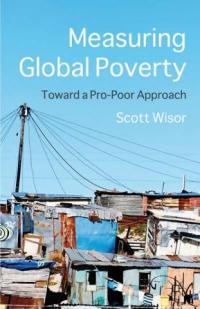Measuring global poverty : toward a pro-poor approach

This book lays out the key contemporary debates in poverty measurement, and provides a new analytical framework for thinking about poverty conception and measurement. Rather than trying to find some essential meaning of poverty, the author recommends explicitly reflecting on the purposes served by the concept and the values that do and should inform our conceptions and measures. After reviewing the strengths and weaknesses of five competing conceptions of poverty and their corresponding measures, the book concludes with specific recommendations for the future. Poverty measurement should be developed through a process of public reason that gives weight to the voices of those individuals who are most marginalized and deprived. The author suggests new values, desiderata, and candidate indicators that should be used in a pro-poor poverty measure.
Keywords:
Broad subject:
Call number:
Record updated: 2020/04/10
